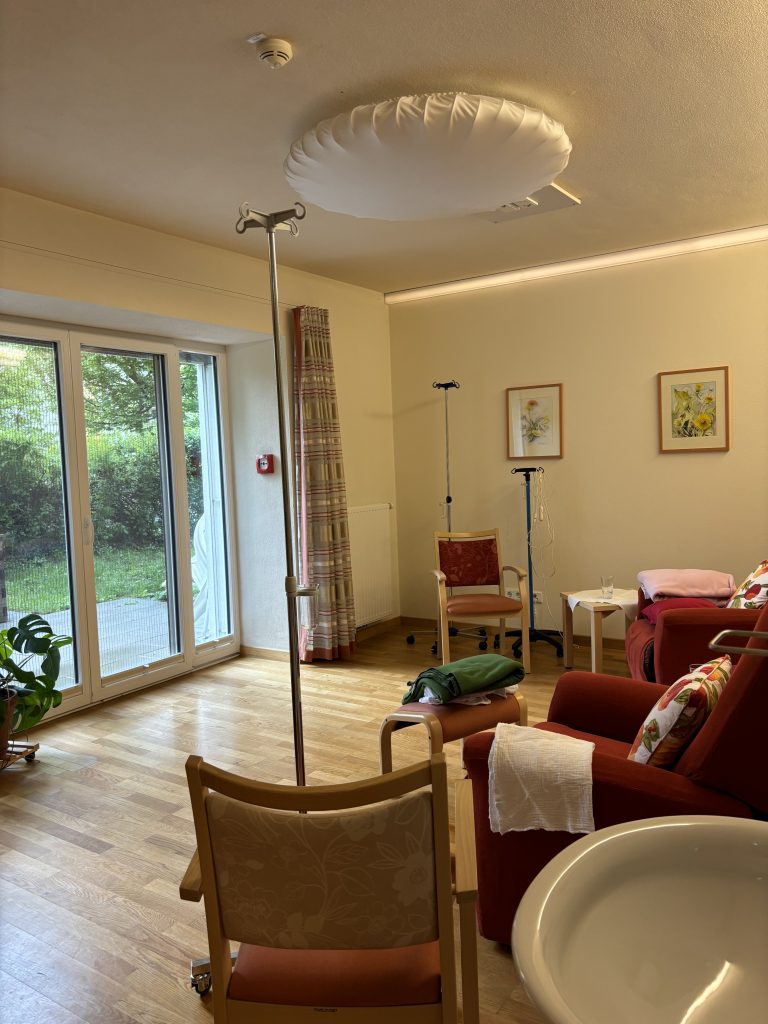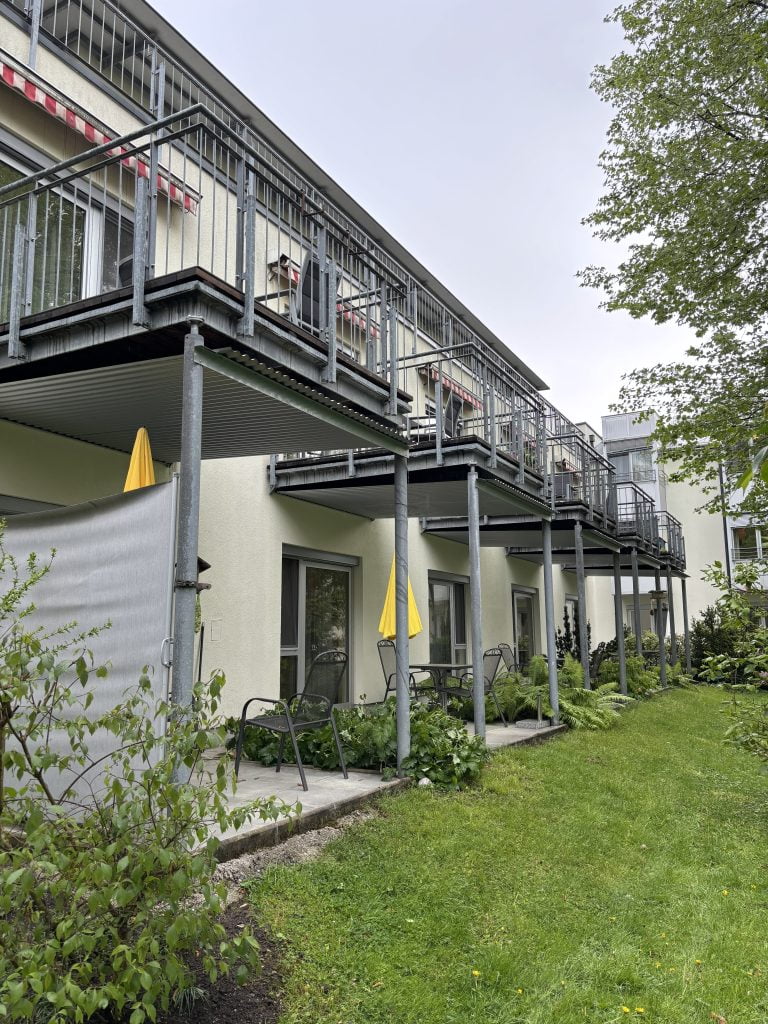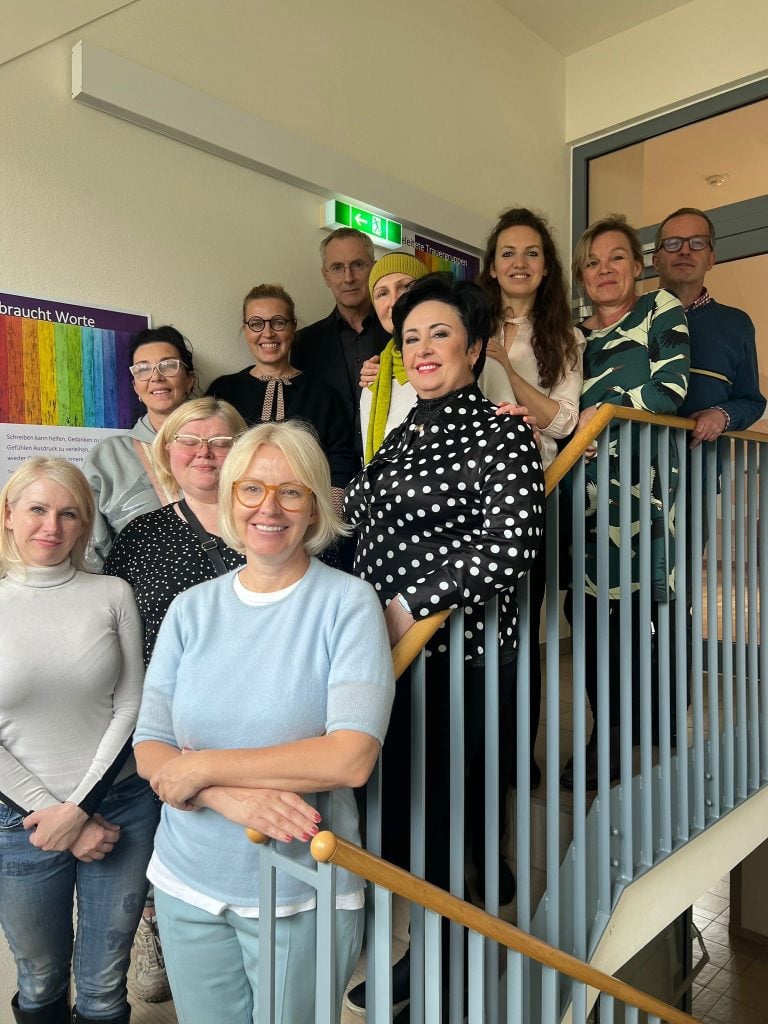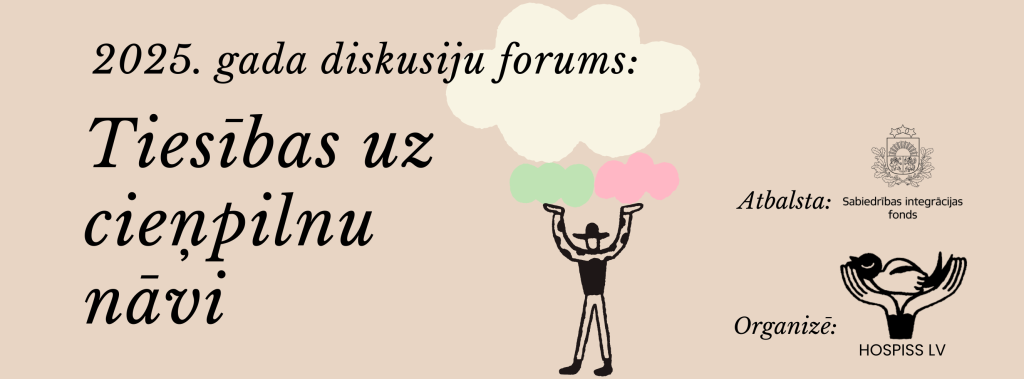"In Austria, dignified death is recognized as a fundamental right of every individual. Quality of life is possible even for the terminally ill and their loved ones until their last breath!" acknowledges Christoph S. Eisls, the leader of the Salzburg hospice movement. He explained that in Austria, as well, the journey to secure state funding for hospice care has been long and complex. Although now hospice care is funded by both the state, municipalities, and insurance companies, a large portion of the costs is still covered by donors.
In Austria, the hospice care system consists of three pillars: mobile care teams, a hospice day center, and a hospice ward. Mobile palliative care teams have been operating (since 1989!) on the same principles as ours - an interdisciplinary team arrives at the patient's home, providing holistic care, enabling terminally ill individuals to stay at home, receive medical care, find relief, and receive emotional support - both for the patient and their families.
A significant support for both the patient and their families are day hospices, where friendly and hospitable care is provided outside the home environment. It is a place where medical care is combined with socializing. Palliative care doctors and nurses provide the best possible medical care, well-trained volunteers provide daily care and various activities. Day hospices mitigate the risk of social isolation due to illness because people can meet others who function almost as a support group - everyone shares similar experiences, and conversations take place in a safe environment. It is also a respite day for relatives, as they can use this day to attend to their chores peacefully and take a break from daily care. "Hospice LV" also confirmed that the day hospice indeed creates a feeling - of being at home! It has spacious living areas, a library, a kitchen, a green courtyard, and even a "quiet room." When we visited the day ward, it was lunchtime, and the whole house smelled of freshly cooked meal! Everyone sat at the large table in the kitchen (the ward's staff refer to visitors as guests, not patients). The guests introduced to us were smiling and hospitable.
Staying and consultations at the day hospice are free; the only thing guests have to pay for is seven euros for a meal.
The third pillar: the hospice ward. We visited "Raphael Hospice Salzburg," which was opened in 2002. In the ward, everything possible is done to create a cozy, familiar environment. In the mornings, the air is filled with the smell of freshly prepared breakfast; lying on the balcony or terrace, one can listen to the sounds of birds and watch the luxurious magnolia blossoms more with each passing day. The room is furnished with patients' favorite things to create as much homeliness as possible. There's no hint of the hospital atmosphere, nor any hint of sadness and gloominess that one might associate with a place where terminally ill people spend their last days - quite the opposite - it is bright and peaceful. "If I had known what it's like here, I would have come sooner!" is a phrase often heard from hospice patients.
Ilze Zosule, a member of the "Hospice LV" board, was inspired after the trip: "The exchange of experiences with colleagues from Salzburg Hospice not only gave us a lot of information about organizing work in Austria but also strengthened our conviction that our high standards and principles focused on human dignity are worth standing up for and fighting for. Everything humane is so similar both here and there. Now we know that we are on a European level!"
Read more from Salzburg Hospice: https://www.tvnet.lv/8006350/ka-ir-nomirt-austrija
The experience trip to Salzburg Hospice was financially supported by the Society Integration Fund from the Latvian state budget




